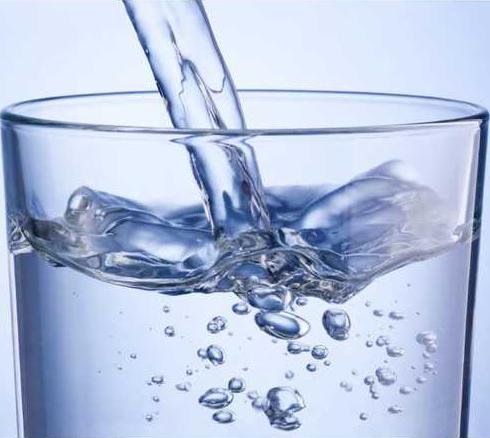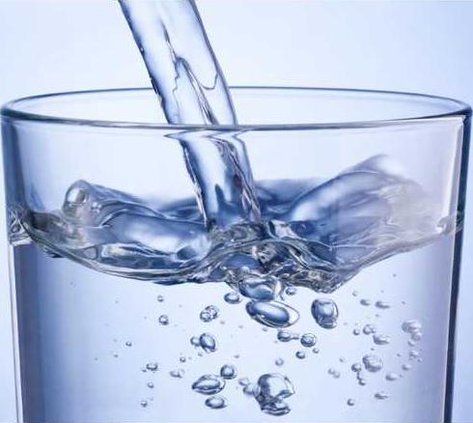Most people have heard you should drink eight glasses of water a day. In fact, hydration is a basic component to healthy living. However multiple studies have found the contrary suggesting your body cant handle excessive amounts of water.
Sure, we all know water is good for you. But when was the last time you drank eight glasses of water normally, without forcing it? Not only is it uncomfortable having that much liquid in your stomach, recent studies show its not healthy, either. In some extreme cases it has even led to death. Here are some reasons why too much of a good thing can cause more harm than benefits.
1. Consuming too much water hinders your body's ability to get rid of waste.
When you drink more water you urinate more, right? You would think that means you are getting rid of the waste quicker. But studies have shown that when you urinate excessively your kidneys have to work overtime to try stabilizing your system.
Your kidneys function is to sift excess waste and water out of the bloodstream, but when you drink too much water, there is a lot more blood for your kidneys to clean.
"If you drink too much water too quickly, the blood becomes diluted and the kidneys cannot filter it fast enough to maintain the proper sodium balance," explained Jill Lee in her article, "Can Drinking Too Much Water Hurt Your Kidneys" for Livestrong.com. "This condition is called hyponatremia and causes symptoms including fatigue, nausea, vomiting and frequent urination."
2. Excessive water negatively affects the brain.
While studies show water can help memory and focus, they also show that too much water can have the opposite effect. We already know that too much water dilutes your blood. But when your kidneys are unable to get rid of the excess water, the cells in your body swell and take in more and more water to relieve the burden on the kidneys.
"Most cells have room to stretch because they are embedded in flexible tissues such as fat and muscle, but this is not the case for neurons. Brain cells are tightly packaged inside a rigid boney cage, the skull, and they have to share this space with blood and cerebrospinal fluid, explains Wolfgang Liedtke, a clinical neuroscientist at Duke University Medical Center in the published article, "Strange but True: Drinking Too Much Water Dan Kill" for Scientific American. "Inside the skull there is almost zero room to expand and swell," he says.
As a result, some people experience seizures, coma, respiratory problems, even death.
3. It wears out your circulatory system.
When you drink too much water your body expands to accommodate all the water it doesnt need and cant process, and, much like clothes that dont fit get stretched and worn out quicker, the blood vessel walls wear out from taking on the excess fluid.
It also dilutes the amount of sodium in your blood, which your whole body needs in order to function. This means that your blood has to go through your body more times in order to get the appropriate amount of sodium to the rest of your cells. This also puts strain on your body because they arent getting the chemicals they need.
The same thing happens to your cells and kidneys. So, even if you stop drinking so much water, you could still have problems with your kidneys because they have been repeatedly flooded with surplus fluid.
The best practice would be to monitor your body's reaction to the amount of water you consume rather than focusing on the quantity.
According to Healthline.com, during a typical day, women should aim to drink 2.2 liters of fluids per day. Men should aim for 3 liters. When you are adequately hydrated, your urine will be pale yellow and you will not feel thirsty.
You should increase your water consumption in situations such as experiencing warmer weather, higher altitudes, during excessive exercise, you are pregnant or breastfeeding, experiencing a fever, or when you recovering from an illness which included vomiting or diarrhea.
For maintaining proper diet, nothing beats water. But, as with most things in life, balancing our diet and daily habits can open up the door to better, and smarter, healthy living.
Sure, we all know water is good for you. But when was the last time you drank eight glasses of water normally, without forcing it? Not only is it uncomfortable having that much liquid in your stomach, recent studies show its not healthy, either. In some extreme cases it has even led to death. Here are some reasons why too much of a good thing can cause more harm than benefits.
1. Consuming too much water hinders your body's ability to get rid of waste.
When you drink more water you urinate more, right? You would think that means you are getting rid of the waste quicker. But studies have shown that when you urinate excessively your kidneys have to work overtime to try stabilizing your system.
Your kidneys function is to sift excess waste and water out of the bloodstream, but when you drink too much water, there is a lot more blood for your kidneys to clean.
"If you drink too much water too quickly, the blood becomes diluted and the kidneys cannot filter it fast enough to maintain the proper sodium balance," explained Jill Lee in her article, "Can Drinking Too Much Water Hurt Your Kidneys" for Livestrong.com. "This condition is called hyponatremia and causes symptoms including fatigue, nausea, vomiting and frequent urination."
2. Excessive water negatively affects the brain.
While studies show water can help memory and focus, they also show that too much water can have the opposite effect. We already know that too much water dilutes your blood. But when your kidneys are unable to get rid of the excess water, the cells in your body swell and take in more and more water to relieve the burden on the kidneys.
"Most cells have room to stretch because they are embedded in flexible tissues such as fat and muscle, but this is not the case for neurons. Brain cells are tightly packaged inside a rigid boney cage, the skull, and they have to share this space with blood and cerebrospinal fluid, explains Wolfgang Liedtke, a clinical neuroscientist at Duke University Medical Center in the published article, "Strange but True: Drinking Too Much Water Dan Kill" for Scientific American. "Inside the skull there is almost zero room to expand and swell," he says.
As a result, some people experience seizures, coma, respiratory problems, even death.
3. It wears out your circulatory system.
When you drink too much water your body expands to accommodate all the water it doesnt need and cant process, and, much like clothes that dont fit get stretched and worn out quicker, the blood vessel walls wear out from taking on the excess fluid.
It also dilutes the amount of sodium in your blood, which your whole body needs in order to function. This means that your blood has to go through your body more times in order to get the appropriate amount of sodium to the rest of your cells. This also puts strain on your body because they arent getting the chemicals they need.
The same thing happens to your cells and kidneys. So, even if you stop drinking so much water, you could still have problems with your kidneys because they have been repeatedly flooded with surplus fluid.
The best practice would be to monitor your body's reaction to the amount of water you consume rather than focusing on the quantity.
According to Healthline.com, during a typical day, women should aim to drink 2.2 liters of fluids per day. Men should aim for 3 liters. When you are adequately hydrated, your urine will be pale yellow and you will not feel thirsty.
You should increase your water consumption in situations such as experiencing warmer weather, higher altitudes, during excessive exercise, you are pregnant or breastfeeding, experiencing a fever, or when you recovering from an illness which included vomiting or diarrhea.
For maintaining proper diet, nothing beats water. But, as with most things in life, balancing our diet and daily habits can open up the door to better, and smarter, healthy living.








